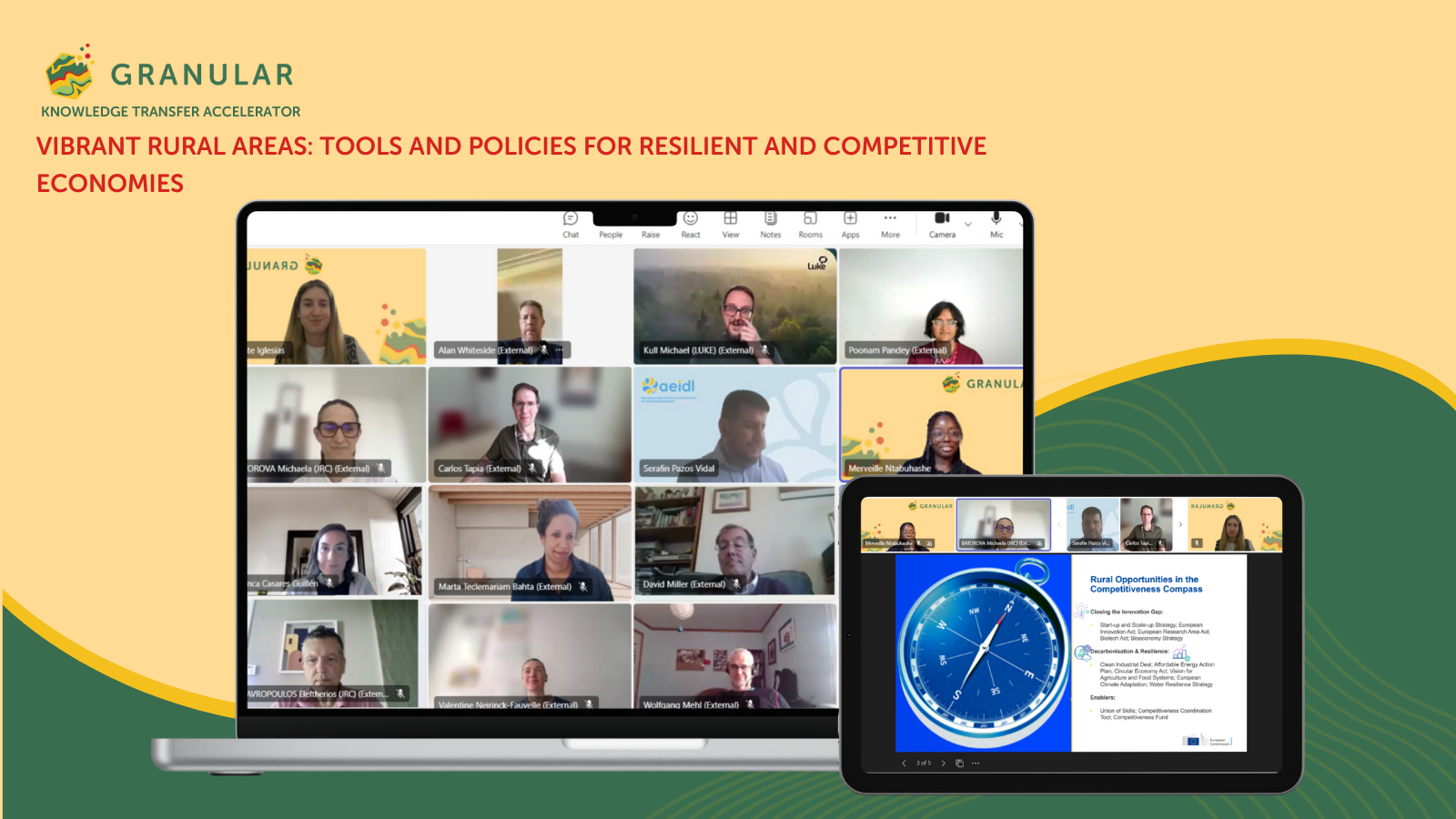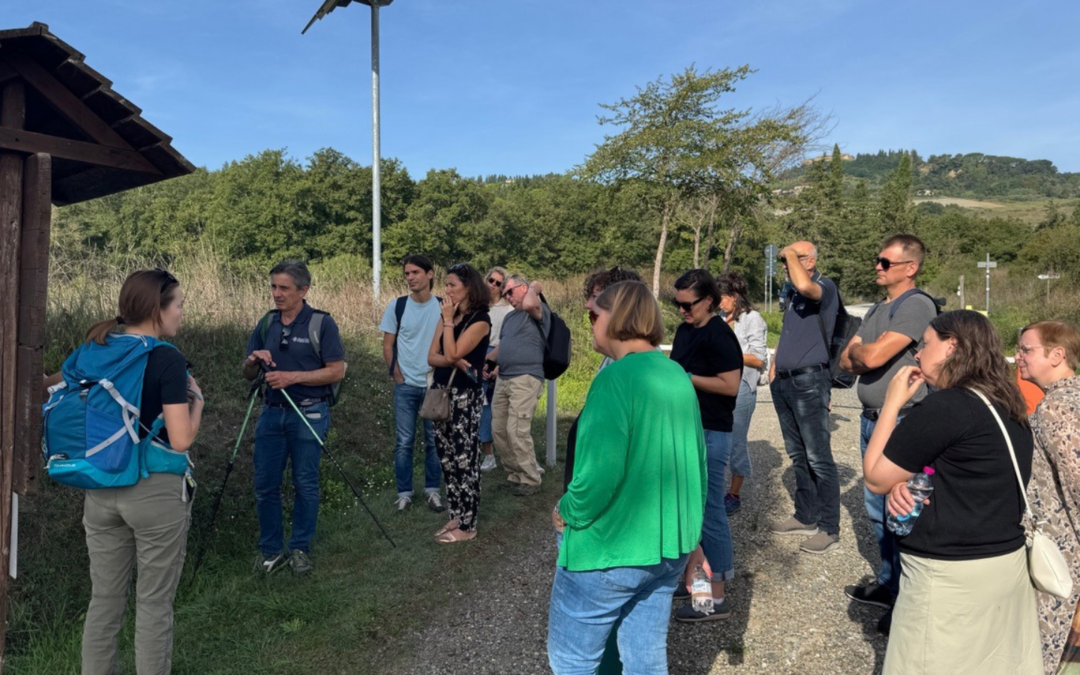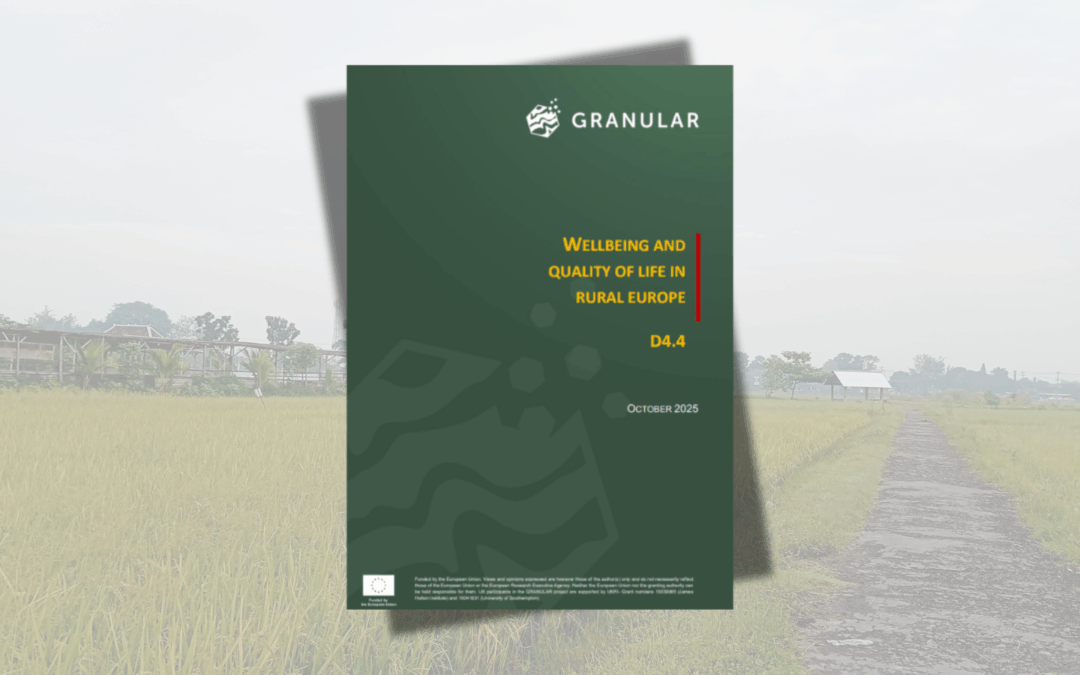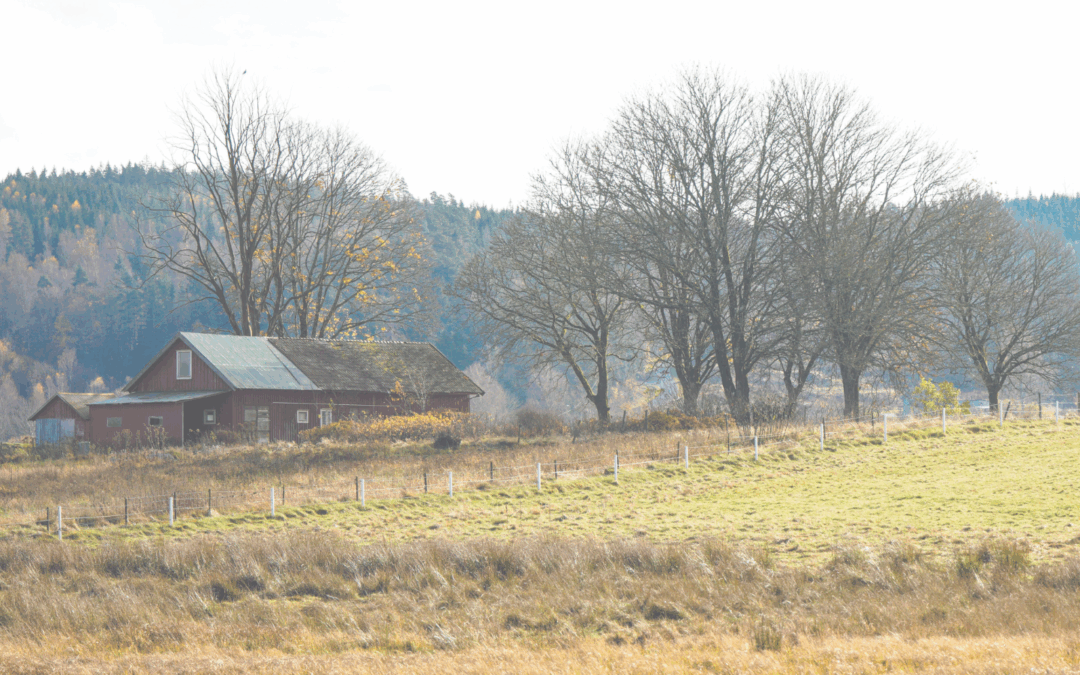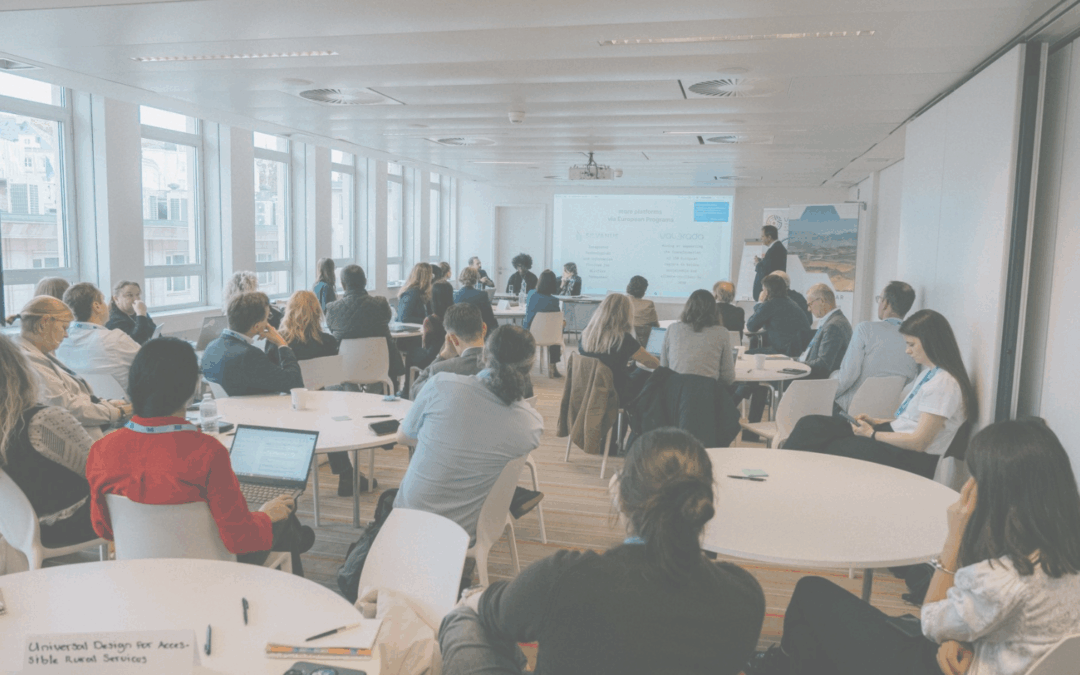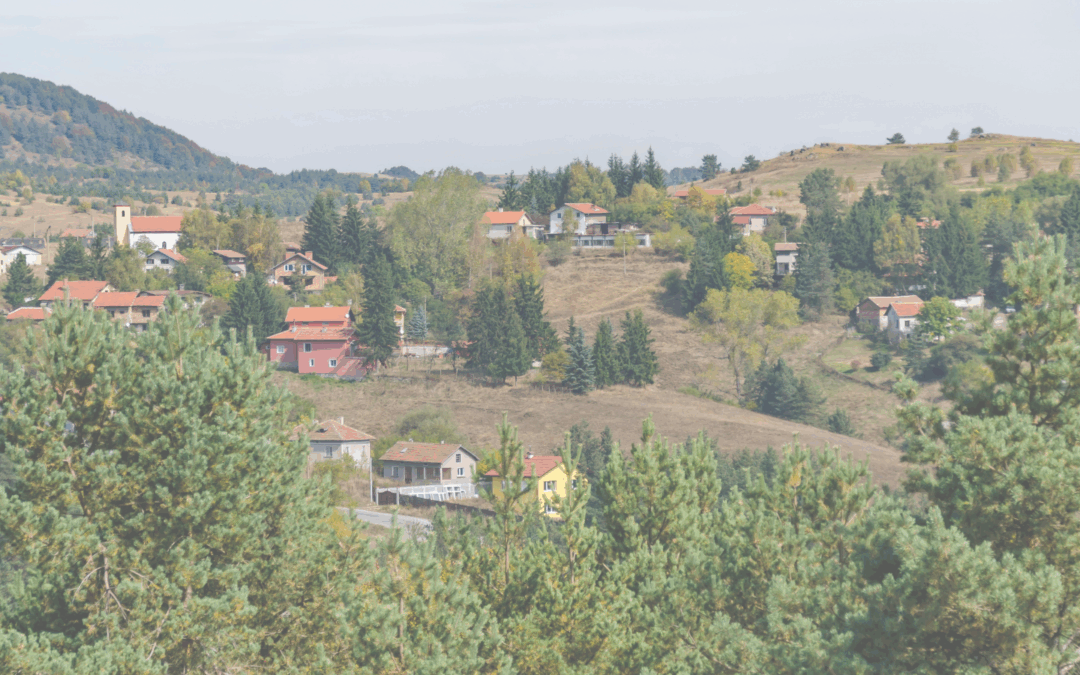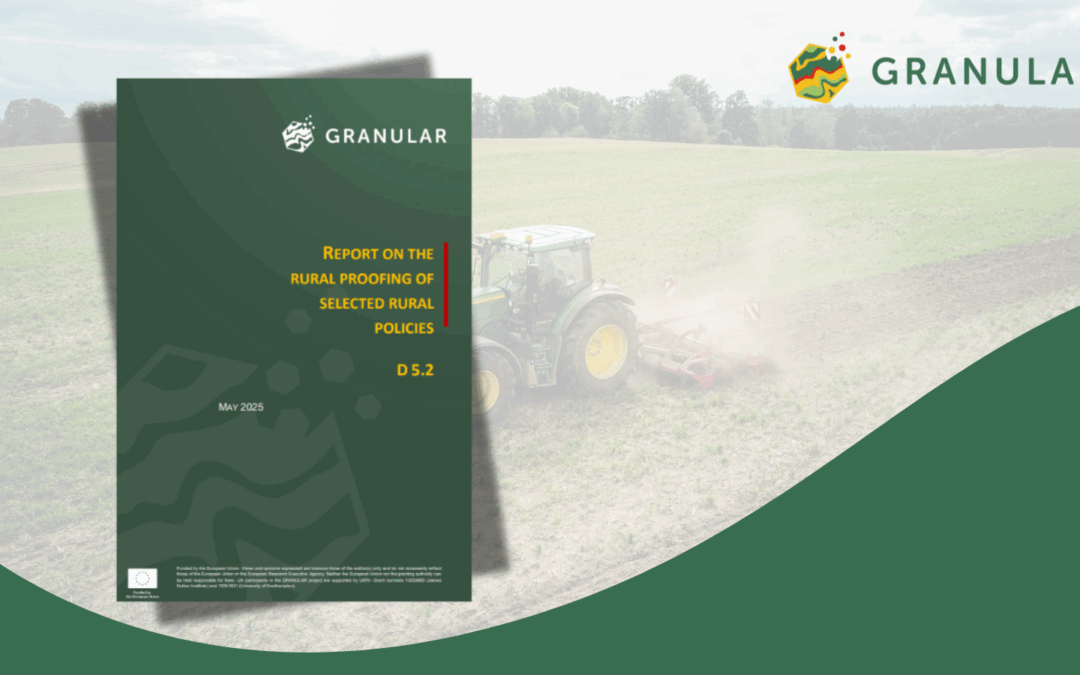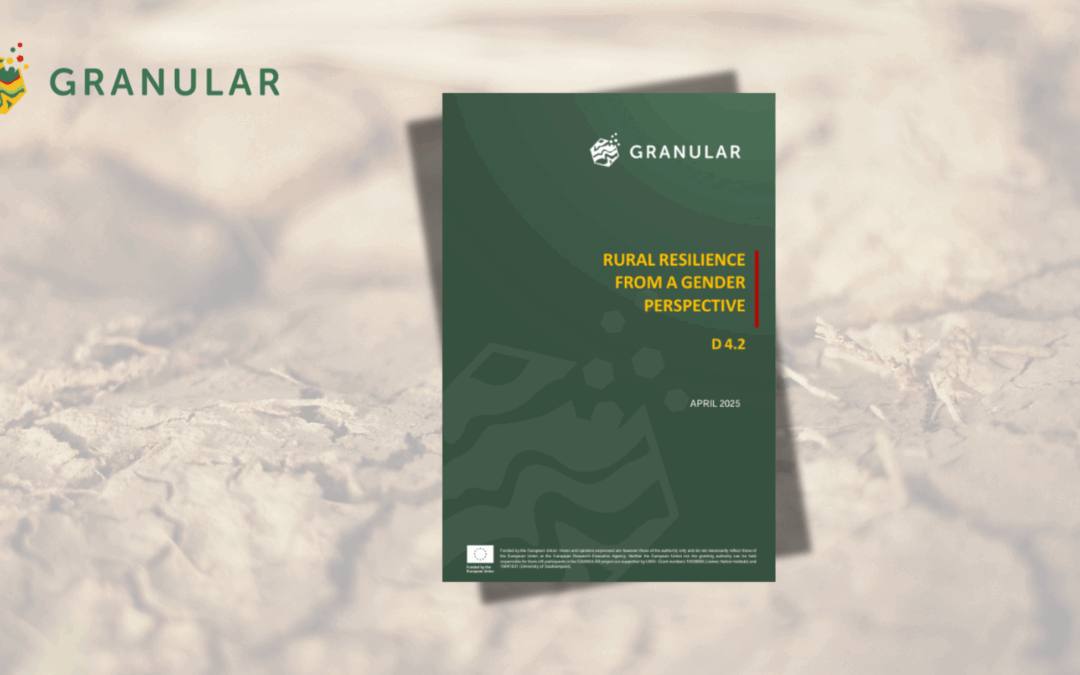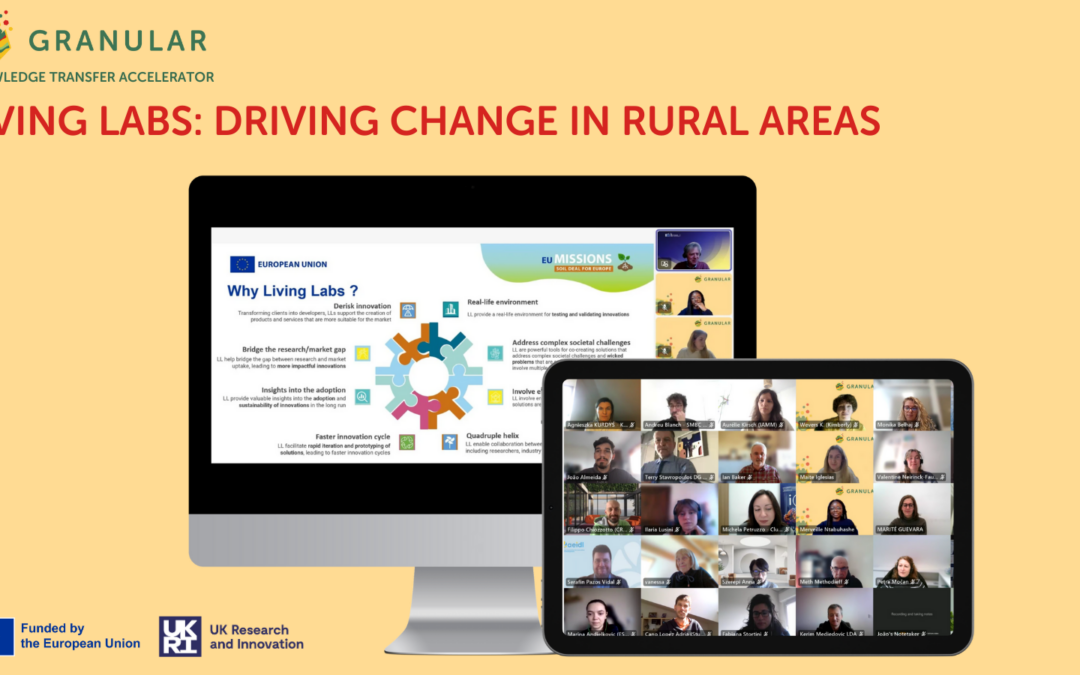Author: Merveille Ntabuhashe (AEIDL)
Experts, policymakers, and researchers gathered virtually for a dynamic session under the GRANULAR project, discussing how innovative tools, data, and policy frameworks can boost economic resilience and competitiveness in Europe’s rural areas.
The webinar, titled “Vibrant Rural Areas: Tools and Policies for Resilient and Competitive Economies“, was organised by the European Association for Innovation in Local Development (AEIDL) in the context of GRANULAR’s Knowledge Transfer Accelerator (KTA). Facilitated by Merveille Ntabuhashe from AEIDL, the event featured insights from key European research and policy institutions including Nordregio, the European Commission’s Joint Research Centre (JRC), and the University of Vigo representing the SERIGO project.
Rethinking Economic Resilience in Rural Contexts
Carlos Tapia from Nordregio opened the discussion talking about rural economic resilience, noting that resilience is not a fixed trait but a dynamic process that evolves as rural economies face a variety of shocks, from economic shifts to extreme weather. Dr Tapia emphasised that many rural regions struggle due to demographic decline, infrastructure gaps, and climate pressures, calling for inclusive, innovation-driven policy responses.
“Inclusive policies that empower local communities and account for their unique strengths and challenges are essential.” Carlos Tapia.
He also previewed experimental work using OpenStreetMap and AI models to measure economic diversification at the functional rural area level, offering new ways to understand business resilience beyond administrative borders.
EU’s Competitiveness Compass: A Window of Opportunity for Rural Areas
Michaela Batorova of the JRC highlighted how the European Commission’s Competitiveness Compass can support rural transformation. Despite limited rural-specific language in the Compass itself, she pointed to a suite of complementary EU tools – such as the Startup Village Forum to the Rural Toolkit – and highlighted how these tools can boost new ideas and for instance inform the Startups and Scaleup Strategy currently being developed by the EC.
“Rural areas are not peripheral; they are foundational,” she asserted, referencing surprising Eurostat data showing strong industrial and construction activity in rural regions. She also underscored the need for better connectivity, skill development, and investment in research infrastructure to close the urban-rural innovation gap. Michaela Batorova’s intervention referenced the JRC’s Outlook and demographic perspectives for EU’s rural regions. She noted that the Competitiveness Compass calls on all actors in all territories, including rural areas, to act decisively to boost productivity, scale innovation, and secure economic sovereignty.
Alternatives for Inclusive and Sustainable Development
Poonam Pandey from the University of Vigo brought a socio-economic lens to the conversation by introducing findings from the SERIGO project. Her research focuses on how social and solidarity economy (SSE) models (cooperatives, community enterprises, and agroecological initiatives) offer viable pathways for rural revitalisation.
“Alternative economic models already exist in rural communities; they are not new but are often under-recognised,” said Dr Pandey. She highlighted that many of these initiatives respond to systemic crises with resilience rooted in local values, shared identities, and care networks. She specifically mentioned that current dominant economic models are increasingly inadequate, contributing to environmental degradation and social injustice, particularly impacting rural areas.
From Data to Action: Functional View on Rural Policy
A recurring theme throughout the session was the need to adopt a “functional” approach to rural development, moving beyond rigid administrative boundaries. Carlos Tapia argued that analysing rural economies at the functional area level better captures real-world dynamics, such as mobility and service access. He explained that official statistics are limited to administrative boundaries, hence the need for a new approach based on Functional Rural Areas, defined by mobility, service exchange, and settlement structure, utilising OpenStreetMap data.
Panel moderator Serafin Pazos Vidal, from AEIDL, reflected on the challenge of translating this thinking into policymaking. “We need to understand rural areas not only through their deficits but through their potential,” he said. “And to do that, we need better data, smarter governance, and genuine co-creation with rural communities.”
The discussion around functional regions highlighted a consensus that these approaches should identify service gaps and guide smart public good provision, not territorial restructuring. Support for “functional proofing” of policies was strong, advocating for its use in program design and evaluation.
Next Steps
The session concluded with a call for continued collaboration and experimentation, both in data innovation and in policy design. Participants emphasised the importance of mutual learning between researchers, practitioners, and policymakers as Europe navigates its competitiveness and sustainability ambitions.
The event’s materials and recording are already available on GRANULAR’s website. Read the highlight’s report for more in-depth insights into the webinar’s conclusions.
